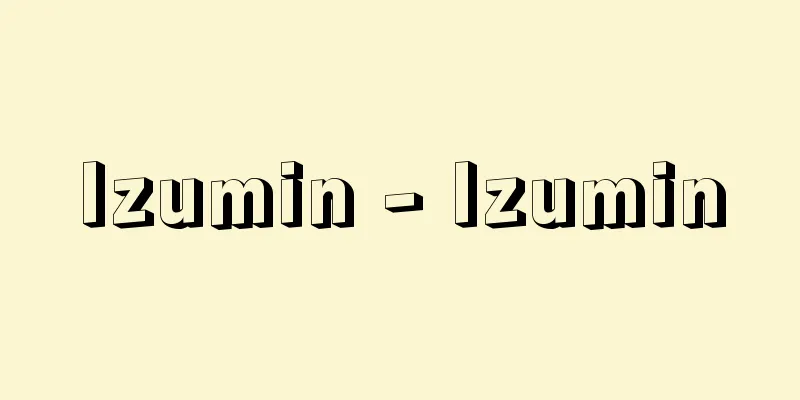Izumin - Izumin

|
〘noun〙① A person who lives in seclusion away from the secular world. ※Jibokushu (c. 1346) 2. Autumn Day "In the days of joy and merriment, there are many holidays. In the heyday of song and dance, there are many exiles." [Analects of Confucius, Weizi] ② A good citizen. [Nippo Jisho (1603-04)] ③ A person who enjoys a carefree life. ※Hyūjun (1786) 1. " Itsumin means vagabonds." ※I Am a Cat (1905-06)〈Natsume Soseki〉 2. "My master, Kangetsu, and Meitei are all exiles in a time of peace." Source: The Selected Edition of the Japanese Language Dictionary About the Selected Edition of the Japanese Language Dictionary Information |
|
〘名〙① 俗世間を離れて、隠れ住む人。※済北集(1346頃か)二・秋日「却歓三朝野多二休暇一。盛世歌謡属二逸民一」 〔論語‐微子〕② 善良な民。〔日葡辞書(1603‐04)〕③ 気ままな生活を楽しんでいる人。※譬喩尽(1786)一「佚民(イツミン)とは遊民をいふ」※吾輩は猫である(1905‐06)〈夏目漱石〉二「主人も寒月も迷亭も太平の逸民で」
出典 精選版 日本国語大辞典精選版 日本国語大辞典について 情報 |
>>: Ipponmatsu [town] - Ipponmatsu
Recommend
External capsule (brain)
…The basal ganglia are divided into the caudate n...
Vladimir Vasil'evich Stasov
1824‐1906 A Russian music and art critic and art h...
Social welfare fund
...The aim of the law was to unify the legal prov...
《Dazed Book》
…In 1803, he was so impressed by the writings of ...
Elementary reaction - Sohannou
When a chemical reaction is considered to be divi...
Cardiopulmonary resuscitation (CPR)
This is a procedure to restore cardiac and pulmona...
Giraffe - Giraffe
…(4) The large, paired-columnar cactus-like E. in...
Ahrensburg Culture - Ahrensburg Culture
…Zinkens are special stone tools used for process...
Nakajima [town] - Nakajima
An old town in Onsen County, northwest of Ehime Pr...
Genna Tsuho
Silver and copper coins (1 mon in value) minted by...
Oshima clan
…The various Ama clans, led by their chiefs (Ama ...
Baleen - Baleen
…They also use the bioluminescence of lanternfish...
Pioneer's hat - Pioneer's hat
...It is worn by both men and women. It was origi...
Mr. Makishima - Makishimaji
A military commander in the Muromachi period. Also...
Trommelsieb
...This device was developed at the Dutch State M...









